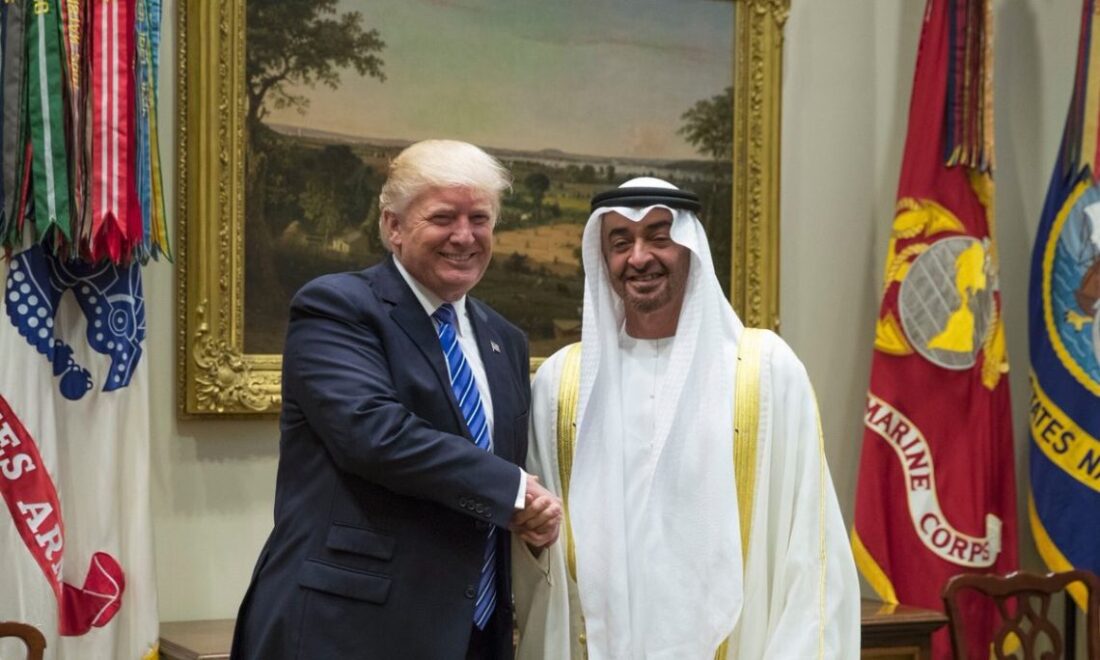Israel’s historic peace treaty with the United Arab Emirates, its third with an Arab country since 1979, shatters what was long regarded as a sacrosanct convention. In plain language, Israel can enjoy the fruits of peace with an Arab state without having to cede territory it conquered during the Six Day War or agree to a Palestinian state.
Triumphantly announced by U.S. President Donald Trump on his Twitter feed on August 13, the agreement commits the UAE to a “full normalization of relations” with Israel in return for Israel’s promise to suspend its much-criticized plan to annex up to one-third of the West Bank, as outlined in the Trump administration’s peace proposal.
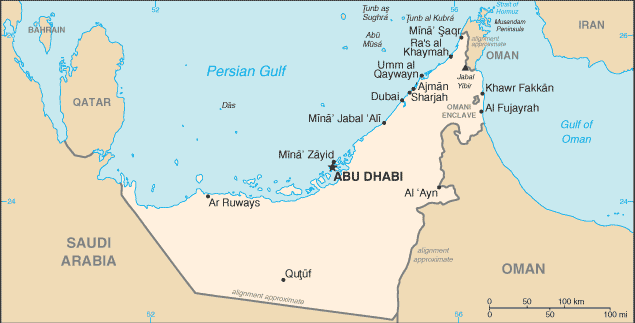
The Israel-UAE accord calls for an exchange of ambassadors and embassies and a wide range of cooperation in the fields of security, tourism, investment, energy and technology. It was finalized after six weeks of indirect talks brokered by Trump’s senior advisor and son-in-law, Jared Kushner.
It’s the culmination of an unobtrusive relationship Israel has nurtured for years. Israel — which maintains an office at the International Renewable Energy Agency in Abu Dhabi — has a web of clandestine security and trade ties with the UAE. And twice in the last few months, the UAE’s flagship carrier has flown medical supplies directly to Israel bound for the Palestinians of the West Bank And Gaza.
Prime Minister Benjamin Netanyahu described the agreement as the dawn of “a new era” in Israel’s relations with the Arab world.
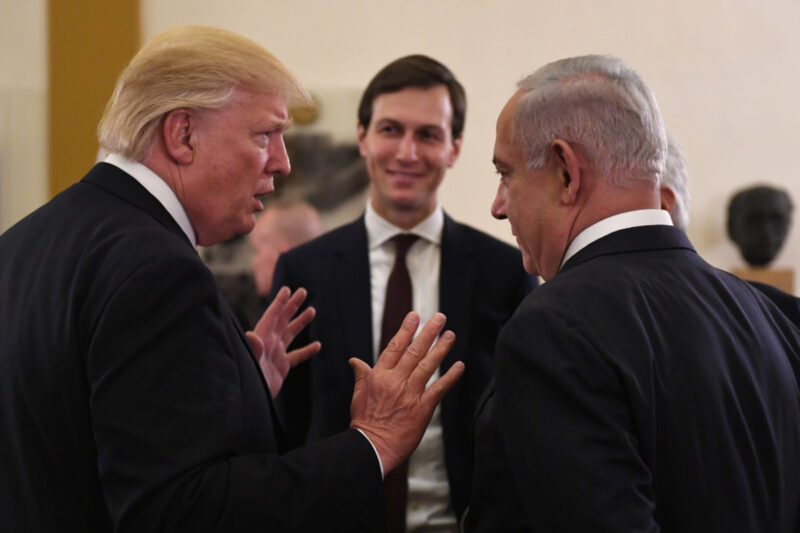
The de facto ruler of the United Arab Emirates, crown prince Mohammed Bin Zayed al-Nahyan, said he decided to officially recognize Israel “to stop further Israeli annexation of Palestinian territories.” And in what seemed like a casual aside, he said that both sides also agreed “to cooperation and setting a roadmap towards establishing a bilateral relationship.”
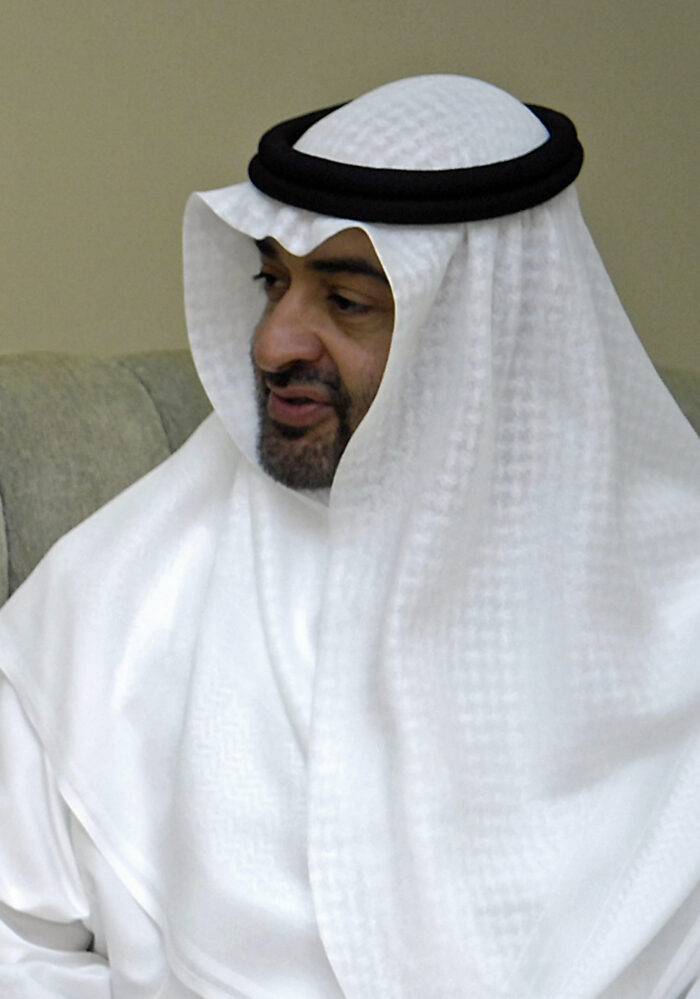
Much to the chagrin and anger of the Palestinians, the only concession the UAE demanded from Israel was the suspension of its controversial plan to annex the Jordan Valley and all its settlements and outposts in the West Bank, which is claimed by the Palestinian Authority for a future state. In the meantime, Israel’s occupation of the West Bank remains intact, though not unchallenged.
In a radical departure from the Arab consensus, the UAE did not demand a resolution of Israel’s protracted conflict with the Palestinians before agreeing to normalize its relations with Israel. Practically speaking, the UAE did not insist on a full Israeli withdrawal from the occupied areas, the evacuation of its network of settlements, or the creation of a sovereign Palestinian state, with East Jerusalem as its capital.
Netanyahu got what he has always sought — peace for peace, thereby eviscerating the land-for-peace formula that he and his right-wing Zionist revisionist Likud Party so disdain. No longer does he have to pay even lip service to a two-state solution.
For Netanyahu, this is a tremendous achievement — a vindication of his oft-repeated belief that moderate Arab Sunni states are more interested in securing Israel’s cooperation in fending off Iran’s advances in the Middle East than in promoting the Palestinian cause.
Judging by the comments of its officials, the UAE continues to support Palestinian statehood, but it’s an objective that Netanyahu and his government oppose on ideological and security grounds.
In the past, Arab states would only agree to bury the hatchet with Israel on the basis of the land-for-peace paradigm.
Egyptian President Anwar Sadat was not prepared to sign a peace treaty with Israel in 1979 until Israeli Prime Minister Menachem Begin assured him that Israel would withdraw from the Sinai Peninsula and acquiesce to Palestinian self-determination in the West Bank and the Gaza Strip.
The PLO’s chairman, Yasser Arafat, demanded concrete concessions from Israeli Prime Minister Yitzhak Rabin before signing on to the first Oslo accord in 1993.
King Hussein of Jordan signed a peace treaty with Israel in 1994 only when the prospect of Palestinian statehood seemed possible.
During the late 1990s, Syrian President Hafez al-Assad discounted the possibility of peace with Israel unless it made a full withdrawal from the Golan Heights and relinquished the northeast tip of the Sea of Galilee, which had been in Syrian hands prior to the Six Day War.
In 2002, the Arab League offered Israel normalization with all its member states on condition of its withdrawal from the occupied territories and its acceptance of a Palestinian state in the West Bank and Gaza.
It appears that UAE negotiators made no such demands. And Israel’s discussions were the UAE were relatively straightforward because Israel and the UAE have never fought a war, or struggle with vexing territorial issues.
These factors, plus the UAE’s fear of Iran, the strongest Shi’a power in the Middle East, spelled the difference between success and failure.
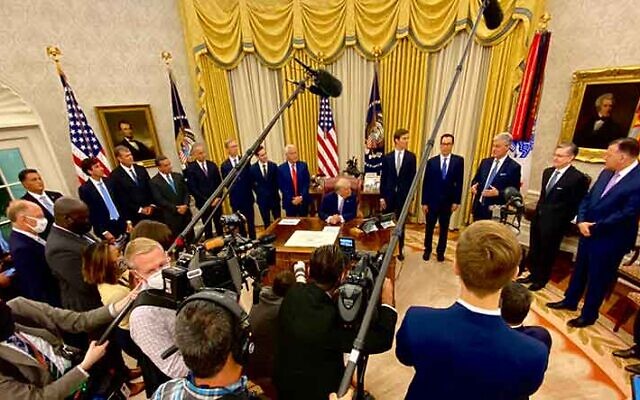
Describing the agreement as “a significant step towards building a more peaceful, secure and prosperous Middle East,” Trump claimed that more Middle Eastern nations may emulate the UAE. “Now that the ice has been broken, I expect more Arab and Muslim countries will follow (its) lead.”
Netanyahu concurred, predicting that additional Arab and Muslim states “will join the circle of peace with us.”
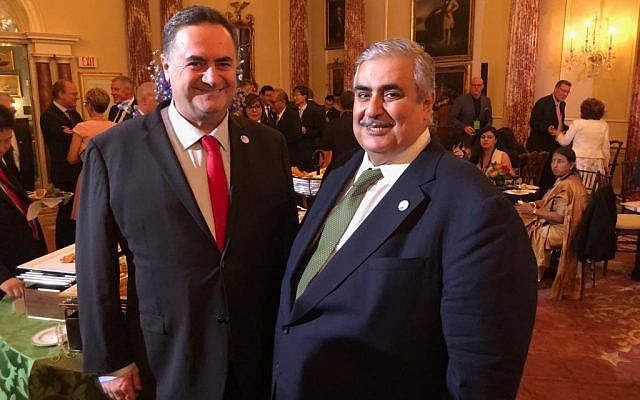
Bahrain and Oman could be next in line. Israeli government ministers, including the former foreign minister, Israel Katz, have visited Bahrain.
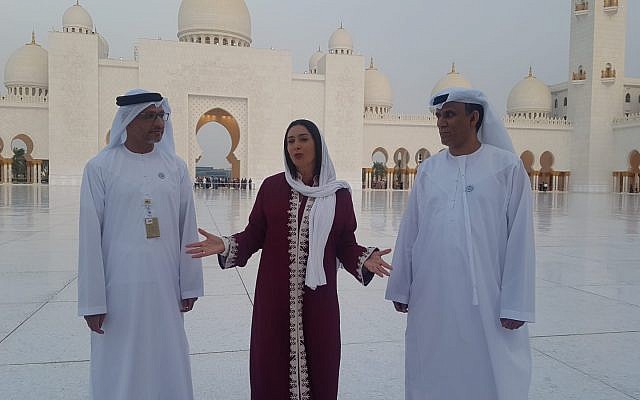
In 2018, Netanyahu paid a visit to Oman — where Israel had a trade office until the second Palestinian uprising in 2000 — and met with Sultan Qaboos bin Said, who died recently.
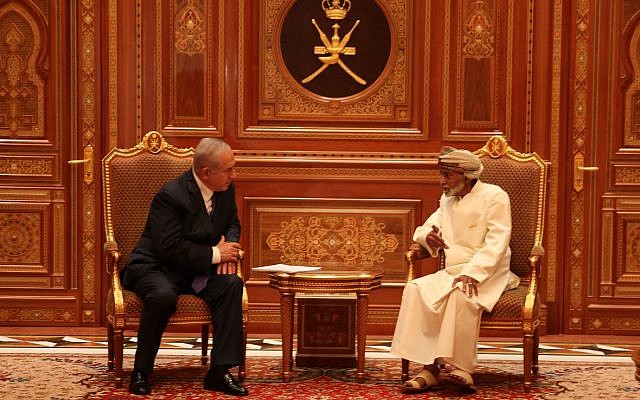
It’s uncertain whether Saudi Arabia — the cradle of Islam — will follow in the UAE’s footsteps. The Saudi crown prince, Mohammed bin Salman, is probably interested in forging an accommodation with Israel, but his father, King Salman, is adamantly opposed. Kushner, however, believes that relations between Israel and Saudi Arabia are inevitable.
The big question at this moment is whether Netanyahu has abandoned the notion of annexing segments of the West Bank.
The United States said the Israeli government would “suspend declaring sovereignty” in the West Bank. But a suspension is not a cancellation, as Netanyahu noted. In a televised comment designed to appease Israeli settlers, who are bitterly disappointed by his decision to set annexation aside, he said he is “committed to annexing parts of the West Bank,” and that the suspension is merely temporary.
Claiming that Trump had only requested a “temporary” suspension, Netanyahu declared that “temporary means temporary,” and that he was committed to sovereignty, and will “never give up on our rights in our land.”
In short, the issue “remains on the table,” he said. “Just as I brought peace, I will bring sovereignty (to the West Bank). I am committed to sovereignty …”
If Netanyahu means what he says, he may well jeopardize Israel’s agreement with the UAE, which is expected to be formally signed and sealed in a ceremony in Washington in a few weeks.
Two months ago, the UAE’s ambassador to the United States, Yousef al-Otaiba, wrote an op-ed piece for the Israeli tabloid Yediot Ahronot in which he urged Israel to jettison annexation. “It’s either annexation or normalization,” he warned.
Affirming the benefits of normalization for Israel, he said, “Greater security. Direct links. Expanded markets. Growing acceptance. This is what normal could be.” Otaiba added that “normal is not annexation. Instead, annexation is a misguided provocation …”
Netanyahu listened carefully and has wisely opted for normalization. But the Palestinian imbroglio, the core of the Arab-Israeli dispute, still simmers and is far from resolved.
Israel will not enjoy real peace with all its Arab neighbors, including the Palestinians, until that burning issue is finally settled.
